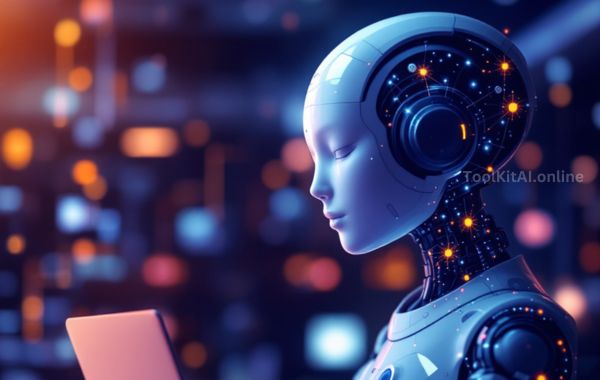As artificial intelligence and automation continue advancing at a rapid pace, anxiety has arisen about the potential for AI and robots to render human jobs and skills obsolete. In particular, there is apprehension that AI may automate away the role of business analysts as algorithms take over data processing and analysis tasks. However, a deeper look suggests AI is unlikely to wholly replace business analysts anytime soon. While AI can augment and enhance certain elements of business analysis, fundamental human skills like contextual reasoning, communication, ethics and leadership remain irreplaceable. The future role of analysts lies in effectively collaborating with AI tools while retaining strategic oversight.

Why AI Cannot Fully Substitute Human Business Analysts
At a surface level, it may appear algorithms can replicate the analytical tasks encompassed in the business analyst role. AI tools powered by machine learning are highly adept at ingesting large data sets, identifying patterns and correlations, providing predictive analytics, and optimizing routine processes.
Doesn’t this encompass the core of what business analysts do?
However, business analysis involves much more nuanced cognition and contextual human judgement. Key differentiating capabilities of human analysts include:
Industry and Organizational Knowledge: Business analysts rely extensively on their institutional knowledge and subject matter expertise about their company’s specific competitive environment, organizational structure, internal dynamics, and strategic goals. This cultivated contextual understanding is very difficult for AI to replicate and allows analysts to interpret data insights in an impactful manner.
Critical Thinking and Problem Solving: Analysts apply critical thinking skills to deeply analyze business problems. They synthesize both quantitative and qualitative data, asking strategic questions and weighing interconnections and nuances that algorithms miss. Analysts then leverage creativity and outside-the-box thinking to generate thoughtful solutions. Replicating this versatile human cognition remains challenging for AI.
Communication and Collaboration: Business analysis involves significant stakeholder interactions to gather requirements, share findings, build consensus, and lead change. These collaborative processes rely heavily on analysts’ interpersonal skills, emotional intelligence, rhetorical ability, and cultural awareness within their organization. AI currently lacks the well-rounded sophistication to navigate these complex human dynamics.
Ethics and Change Management: As AI gets incorporated into business decisions, analysts play a crucial role in providing ethical oversight to ensure recommendations align with company values and avoid bias. Analysts also lead essential change management initiatives to successfully implement solutions, requiring an understanding of human motivation and psychology. AI does not have intrinsic human values.
Clearly, while AI can replicate narrow technical skills, the well-rounded strategic, collaborative, ethical and leadership capabilities of human analysts remain indispensable.
AI as an Augmenting Partner Rather Than Replacement
Given these complementary strengths of humans and AI, the technology is better positioned as an augmenting partner:
- Efficient Data Processing: By rapidly crunching and combining massive datasets, AI enables analysts to spend less time on data collection and cleaning. This allows them to focus more on high-value interpretation and strategy.
- Enhanced Insights: By surfacing impactful patterns, correlations and trends, AI provides analysts with amplified inputs and intelligence to drive strategic recommendations.
- Predictive Foresight: AI simulations and predictive analytics empower analysts to foresee challenges and opportunities proactively rather than reactively responding.
- Automating Tasks: AI can take over low-level repetitive analytical tasks like data entry, report generation and process optimization. This frees up analyst time for creative critical thinking.
Rather than full replacement, integrative collaboration between human analysts and AI augments overall business analysis capabilities.
Skills for Analysts to Thrive Alongside AI
To remain irreplaceable and highly valuable in an AI-powered business landscape, analysts should focus on honing skills that make them distinctly human:
- AI, ML and Analytics Literacy: Developing conceptual knowledge of how various AI and analytics tools work will enable analysts to collaborate with these technologies most effectively. Learning some data science best practices can also be helpful to better grasp machine learning models.
- Business Strategy and Leadership: Doubling down on high-level strategic thinking, change management leadership and organizational psychology will allow analysts to provide vision and oversight over AI systems. This emphasis on business strategy over data analysis will differentiate human analysts.
- Creativity and Critical Thinking: Applying subjective human judgment to question data, make connections across disparate insights, and generate innovative solutions will be a lasting competitive advantage humans have over algorithms. Analysts should hone these creative problem-solving skills.
- Communication and Emotional Intelligence: With AI handling an increasing portion of routine analytical tasks, analysts should heighten their abilities to compellingly communicate insights, lead stakeholders, and navigate organizational dynamics through storytelling, inspiration and emotional intelligence. These interactive skills will become more crucial.
- Ethics and Cultural Awareness: Analyst oversight is essential to ensure AI recommendations align with company values and avoid baked-in biases. Analysts should enhance their ethical reasoning abilities and cultural understanding of their organization’s unwritten norms.
In summary, while AI will substantially transform aspects of business analysis, humans remain irreplaceable in this multifaceted strategic role. Rather than being displaced, forward-thinking analysts who judiciously collaborate with AI as an augmentation tool while continuously developing their high-level leadership, oversight and social skills will remain integral to organizational success. With the right proactive mindset, analysts can fluidly evolve alongside technology, retaining their strategic position. The future role of analysts lies in working synergistically with AI to uncover deeper insights and direct focused strategic efforts that drive impactful business outcomes.